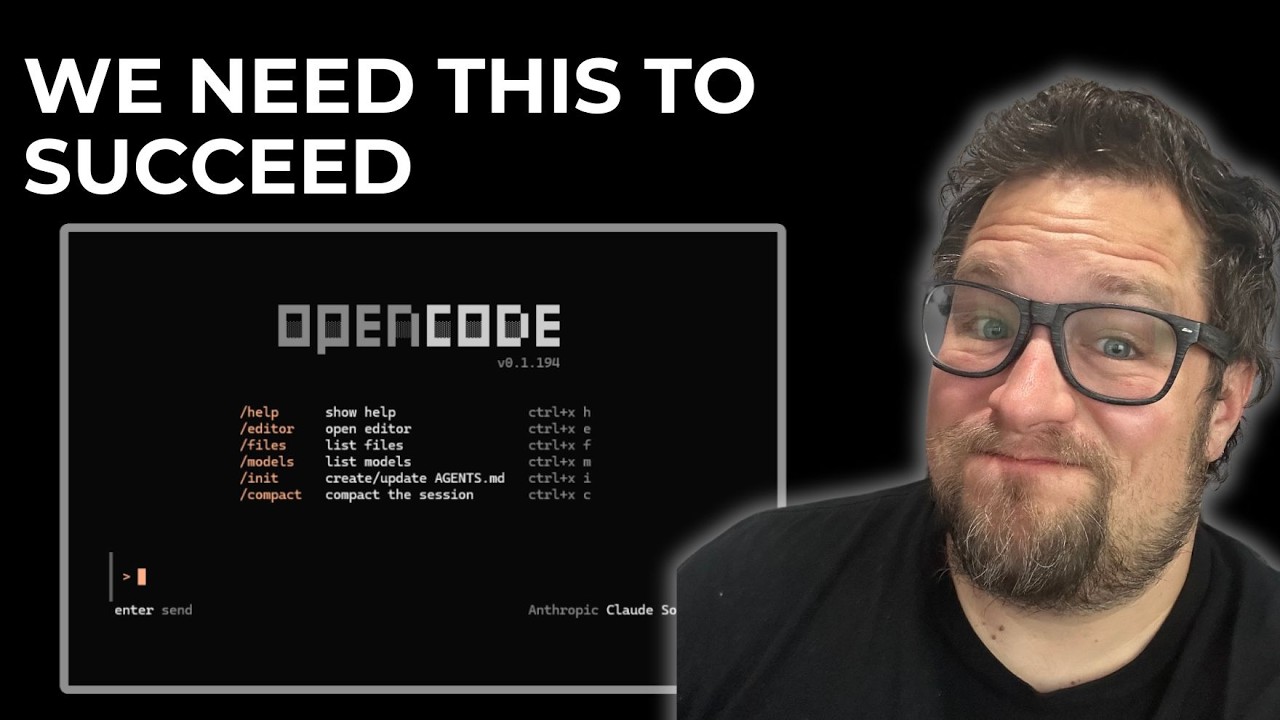The video showcases using Open Code with a local model to successfully recreate Flappy Bird, highlighting practical tips, challenges, and the importance of open-source tools for affordable, transparent AI coding solutions. It also critiques costly cloud-based services and recent unfavorable changes in Cursor’s pricing, urging community support for projects that enable effective local AI model use.
In this video, the creator demonstrates using Open Code with a local model, specifically Devstral Small, to recreate the classic Flappy Bird game. They show their open code.json configuration file and explain how they set up Open Code to work with their local model. Despite initial doubts about the model’s capability, the generation process runs smoothly and efficiently, with good GPU utilization. The resulting Flappy Bird clone is surprisingly functional, showcasing the potential of local models combined with Open Code for coding tasks.
The creator then discusses some practical tips and challenges encountered while using Open Code. One notable difficulty is adding files to the context, where the usual “@” symbol autocomplete doesn’t work as expected, requiring a workaround by typing the file path differently. They also highlight the importance of using the correct Open Code GitHub repository (SST Open Code) for the latest updates and better support. Additionally, they caution users about infinite loops when using certain models like Gemini 2.5 Pro and share insights on proper authentication commands and session management within Open Code.
A significant portion of the video focuses on the broader need for open-source solutions that support local models. The creator emphasizes the importance of having alternatives to cloud-based coding AI services, which are often expensive and not always profitable for providers. They mention their positive experiences with Cloud Code and Claude Max but express concern about rising costs and the sustainability of these services. Transparency around usage limits and pricing is also a key point, with the creator preferring timeout-based limits over strict monthly caps.
The video also critiques recent changes in Cursor’s pricing and service model, describing it as anti-consumer and frustrating for long-term users. The new pricing involves an “auto mode” that randomly routes requests to different models, often favoring cheaper options, which can lead to inconsistent performance. The creator contrasts this with the more consumer-friendly approach of Cloud Code and Claude Max, which offer clearer limits and better user experience. They express disappointment in Cursor’s shift and caution viewers about these changes.
In conclusion, the creator calls for community support and enthusiasm for open-source projects like Open Code, Root Code, and Klein that aim to enable effective use of local AI models. They stress the importance of these projects succeeding to provide affordable, transparent, and reliable coding AI tools. The video ends with an invitation for viewers to share their experiences with Open Code and thoughts on the evolving landscape of AI coding assistants, highlighting the ongoing need for innovation and accessibility in this space.
